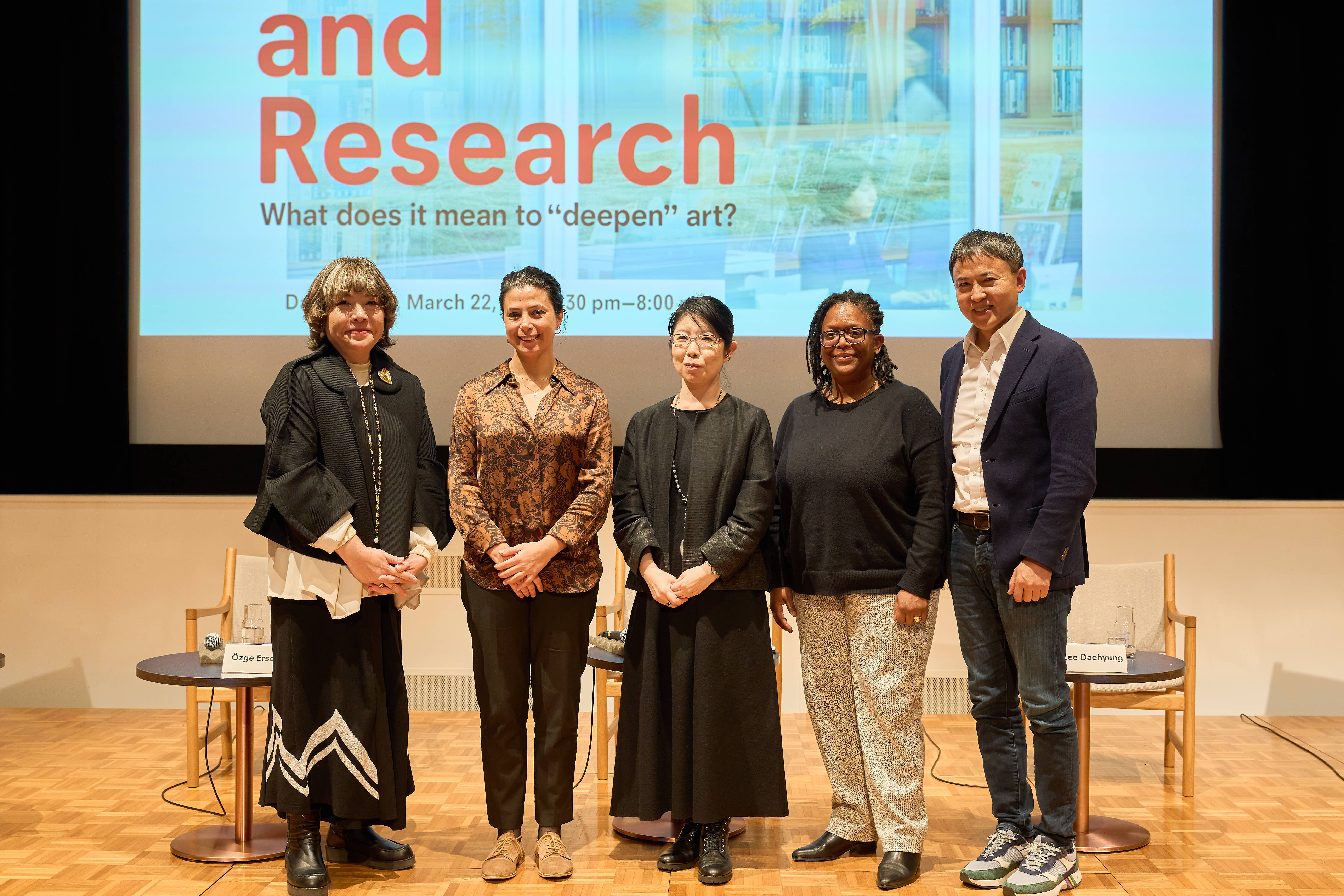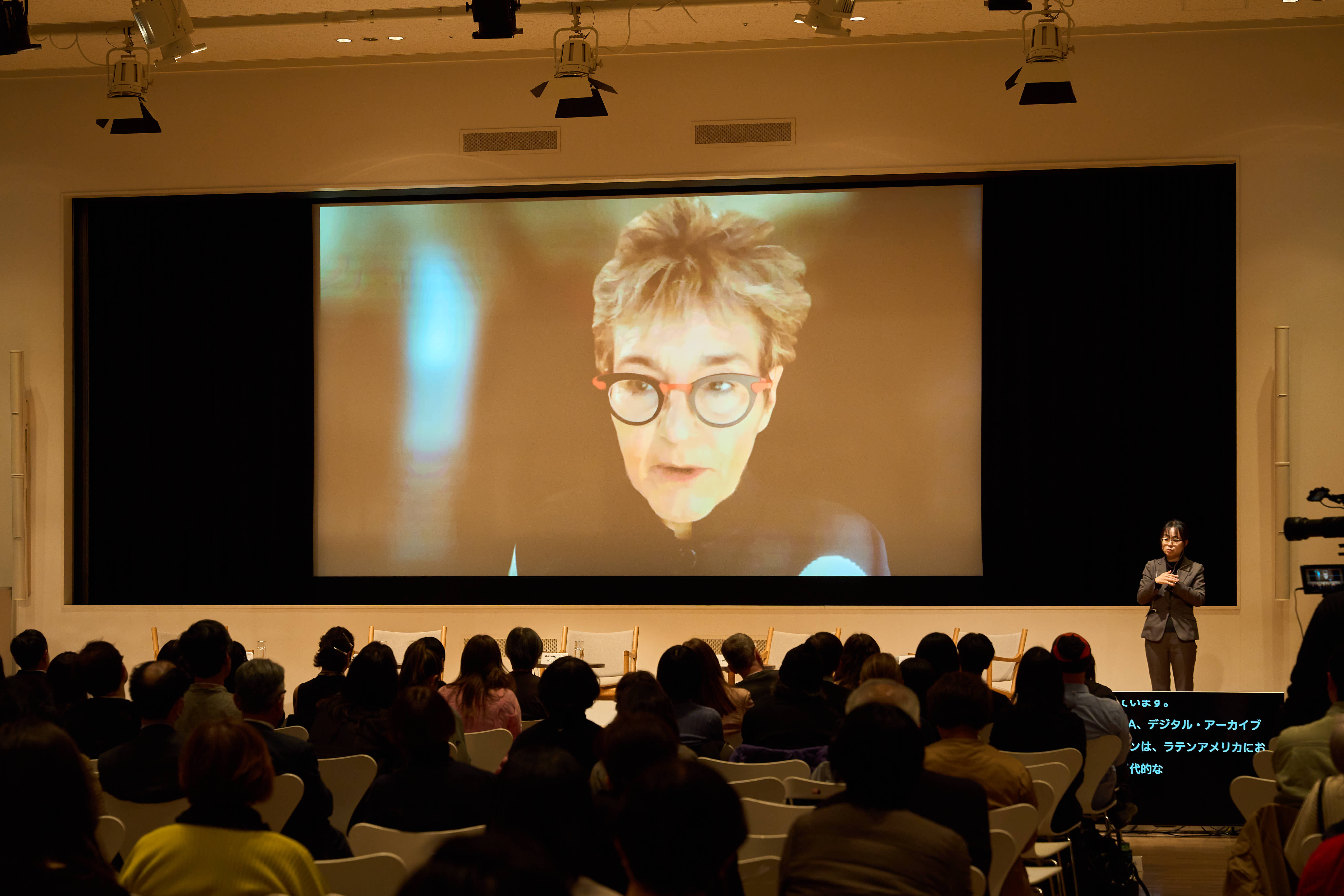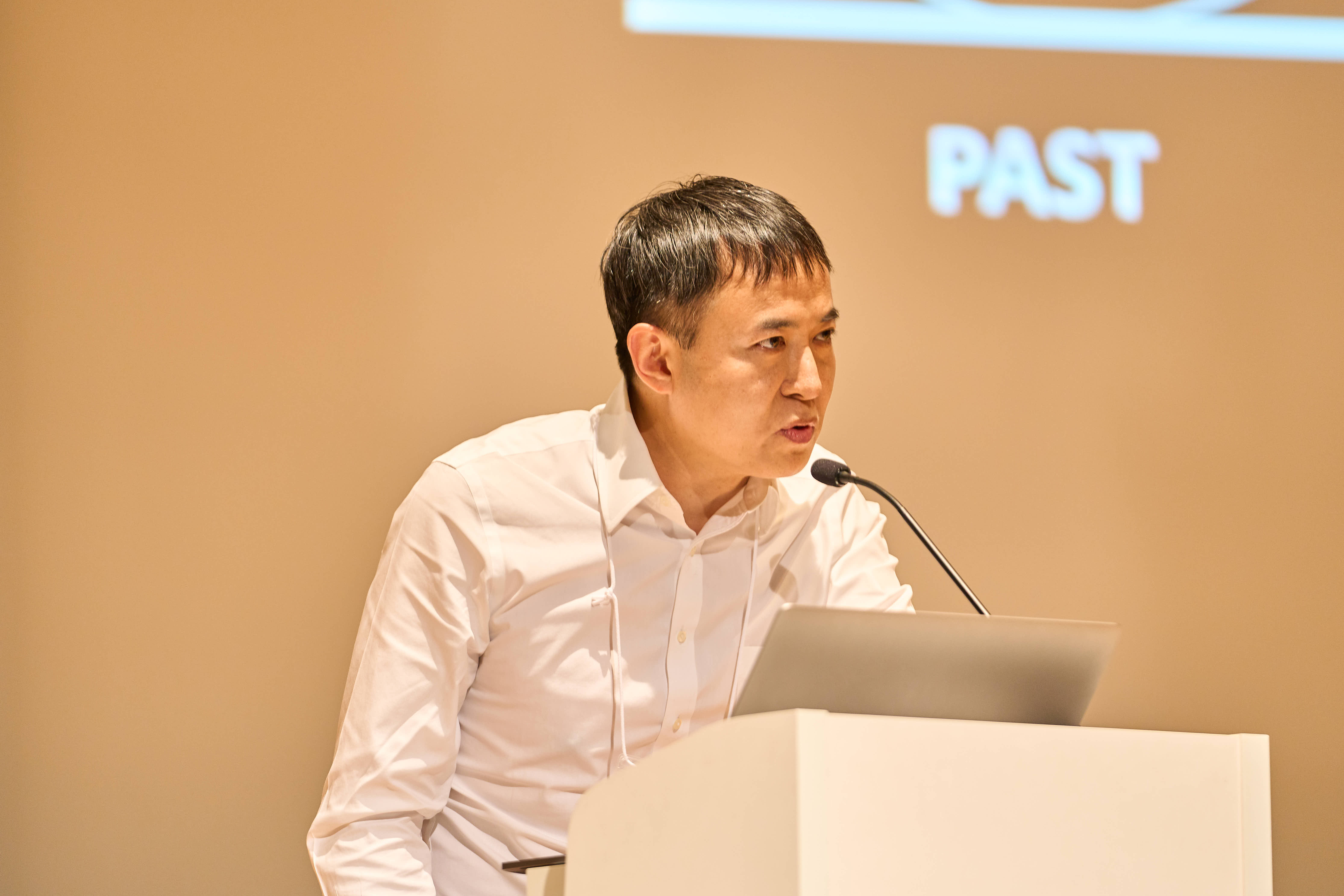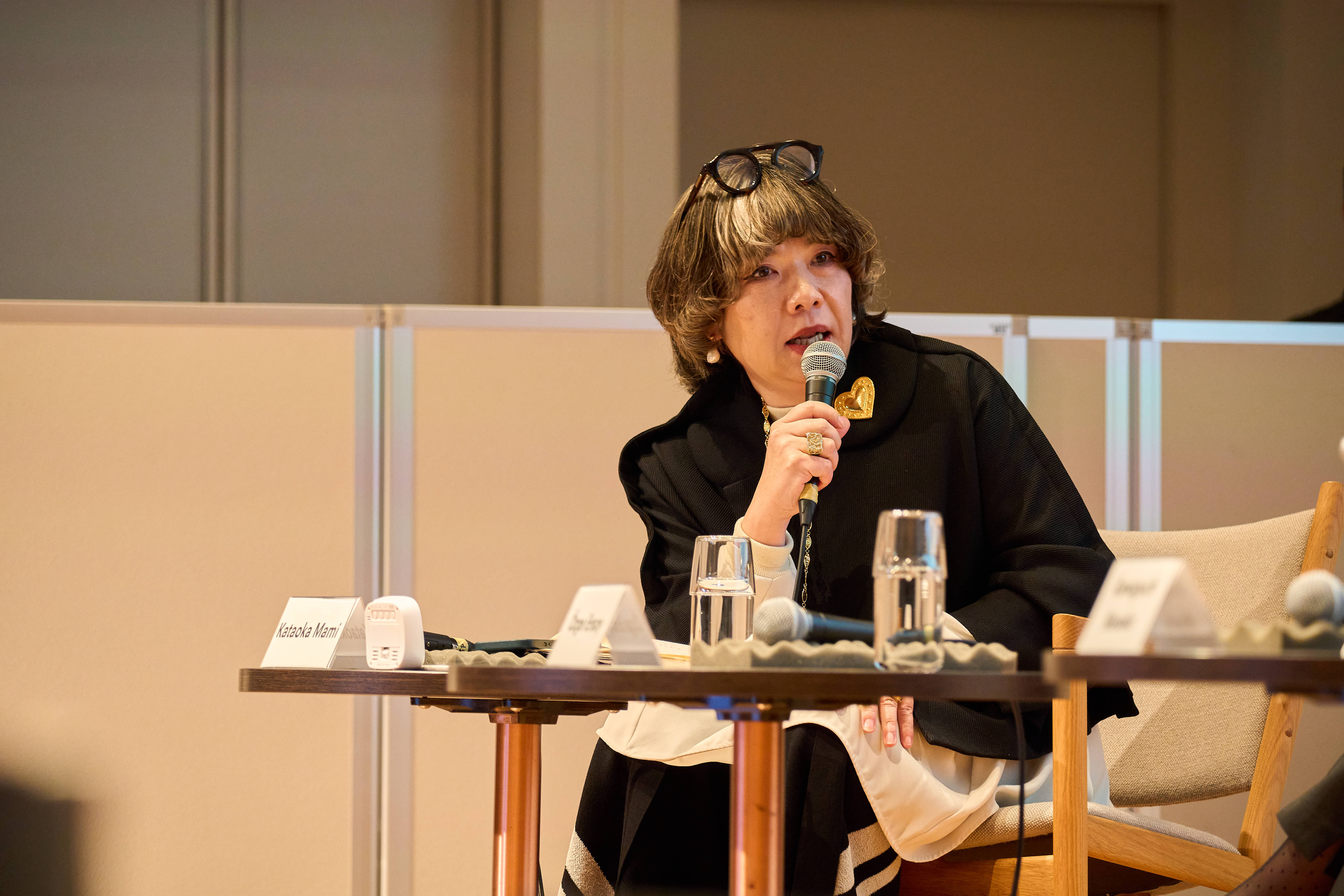What Does it Mean to "Deepen" Art? "National Center for Art Research International Symposium and Workshop 2023" Report #5
Symposium view Photo: Ken Sengoku (.new)
NCAR International Symposium 2023 "Museums and Research: What does it mean to 'deepen' art?"
The National Center for Art Research (NCAR), which aims to be a new hub for promoting art in Japan with the mission of "Connecting, Deepening, and Expanding the Art," held the "National Center for Art Research International Symposium 2023—Museum and Research: What does it mean to 'deepen' art?" at the National Art Center (Nogizaka, Tokyo) on March 22, 2024.
At the symposium, participants from various organizations showcased their unique initiatives, presenting case studies that tackled the challenges of limited funding and human resources while exploring methods to democratize research resources and questions of how to make research resources publicly available and use them globally.
◎ Panelists:
Özge Ersoy (Senior Curator, Asia Art Archive)
Masako Kawaguchi (Head, Research Resources Group, National Center for Art Research)
Daehyung Lee (Founder and Director, Hzone)
Kara Olidge (Associate Director, Getty Research Institute)
Mari Carmen Ramírez (Director, International Center for the Arts of the Americas, the Museum of Fine Arts, Houston)
◎ Moderator:
Mami Kataoka (Director, National Center for Art Research)

PresentationsーInternational Case Studies of Archive and Research
Since its launch on March 28, 2023, NCAR has been dedicated to enhancing the caliber of museum operations across Japan. The Center has pledged to concentrate on four key areas of activities: "promoting utilization of museum collections," "compilation and dissemination of information on art in Japan," "developing international relations and networks," and "enhancing social cooperation and learning."
To truly "deepen art," museums must expand their research capabilities and functions. In the first part of the symposium, international representatives presented the missions and activities of their respective institutions.

For example, the Asia Art Archive (AAA), established in Hong Kong and specializing in contemporary art, extends beyond its archival and library services to include exhibitions, lectures, workshops, international artist residencies, and a wide range of other projects.

The Getty Research Institute (GRI) is a public research center in Los Angeles, California. The GRI is dedicated to furthering knowledge and advancing understanding of the visual arts and their various histories. The GRI is a division of the Getty, funded by John Paul Getty’s legacy, which boasts a renowned research library with over a million books, approximately two million photographs covering fine art and architecture, and twenty-seven thousand prints. The GRI also conducts various projects to support researchers and students, including organizing exhibitions and offering grants and scholarships.

Mari Carmen Ramírez of the Museum of Fine Arts, Houston (MFAH), highlighted the institution's collection of Latin American Art. Introducing her curated exhibitions, she spoke of over ten thousand pieces of materials in the collection and the museum's digital archive. Established in 1900 in Texas, the museum's collection includes European paintings, decorative arts, ancient pieces, pre-Columbian artifacts, photography, contemporary arts, and extensive literature.

On the other hand, Daehyung Lee, founder and director of Hzone in Seoul, South Korea, reflected on the present and past of museums and research from a broader perspective. He discussed his international projects, including the 2020 global public art project "Connect, BTS," the "Hyundai Tate Research Centre: Transnational," and his curation of the Korean Pavilion at the 57th Venice Biennale in 2017. Lee also shared an inspiring message with the audience: "Will the boundaries define us, or will we overcome them and shape our future?"
DiscussionーObstacles of Communicating to the World: The Future of Museums in Japan
During the panel discussion, NCAR’s Director Mami Kataoka initiated a dialogue with Özge Ersoy from AAA and Kara Olidge from the GRI regarding specific instances of museum functions closely related to their museum activities and operations.

Ersoy shared examples of collaborative custodianship of archival materials with M+ and the University of Hong Kong's Department of Art History in an effort to make the digitized and original archival records publicly accessible. She outlined AAA's vision for archiving works by a deceased artist who lived in Singapore and creating a publicly accessible archival system in partnership with the NTU Centre for Contemporary Art Singapore and the National Gallery Singapore, and recounted previous workshops with M+ and the Hong Kong community.
Olidge spoke of the GRI’s foundational role in supporting museums by disseminating information on exhibitions and collections. She noted their involvement in digital archiving, which has been enhanced through a partnership with the Smithsonian Institution in Washington, D.C, particularly in the face of human resources.
These international case studies provide valuable models for art institutions in Japan.

Masako Kawaguchi, head of NCAR's Research Resources Group, outlined the objectives of launching the Japanese Museum Collections Search "SHŪZŌ" database, which aims to facilitate access to museum collections in Japan.
Although the "Cultural Heritage Database," a database of collections across museums, has been in operation in Japan for more than ten years, museums in Japan have struggled to gain international visibility. In 2021, alongside the release of SHŪZŌ, the "Agency for Cultural Affairs' Art Platform Project" launched the "Art Platform Japan" website to provide overseas audiences with foundational knowledge of contemporary Japanese art. Currently, SHŪZŌ is building a database of works by Japanese and foreign artists collected in museums and other institutions across Japan, focusing on modern and contemporary works. As of March 31, 2024, over 287,000 works of art have already been registered in the database.
SHŪZŌ is a significant step forward, yet challenges remain regarding international cooperation, English language data provision, and promotional efforts. Audience members also raised questions about improving search engine usability and tagging functions.

Kataoka wrapped up the discussion by emphasizing the importance of not only increasing visitor numbers or fundraising efforts but also "deepening" museum activities by focusing on meticulous work and communicating such endeavors to enhance overall museum operations. After two and a half hours of spirited dialogue, the symposium concluded to a round of applause, marking another successful chapter in the ongoing.
Find more articles on the "NCAR International Symposium and Workshop 2023":
Naomi



